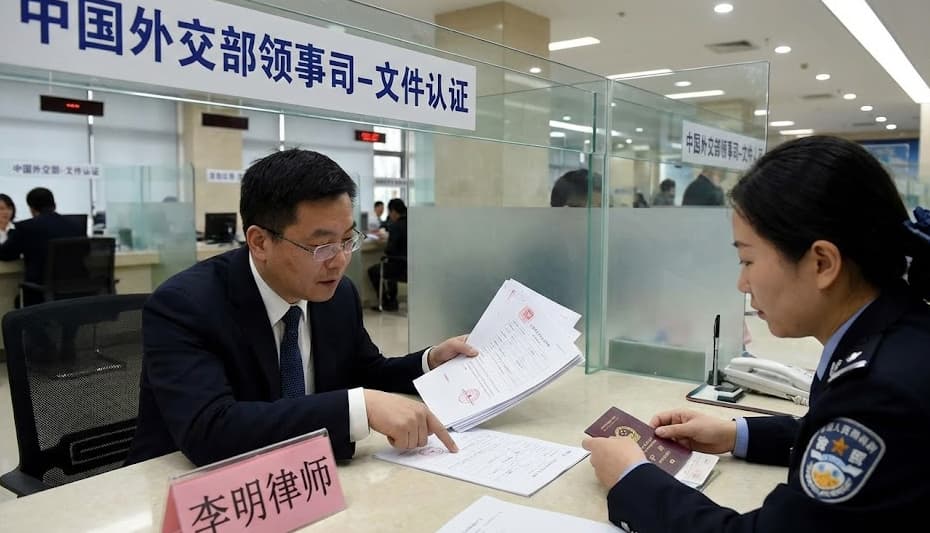The new divorce law in China has completely changed how couples split up. Starting February 1, 2025, the rules are different in ways that matter to anyone married or thinking about tying the knot in China.
Now, couples must wait 30 days before finalizing their divorce. This "cooling-off" period gives everyone time to think twice. The law also changes how houses, cars, and money get divided, making it more fair than the old "split everything 50/50" approach.
If you or your spouse is Chinese, these changes could really affect you! Read on to discover exactly how these new rules might impact your future and what steps you should take now.
Overview Of China's New Divorce Law

China has introduced a new divorce law that took effect on February 1, 2025. This change is part of China's updated Civil Code, which aims to make the divorce process fairer for both parties.
Under the new law, property division rules have changed significantly. Previously, all properties owned by either spouse would be equally divided during divorce.
The new system now has different guidelines. The law also includes a 30-day "cooling off" period for couples considering divorce. This waiting period gives you time to think about your decision before finalizing it.
The new rules affect how assets like homes, investments, and personal items are split when couples separate. You'll find the process more structured than before.
If you're living in China or are a Chinese citizen abroad, these changes might impact your marriage status. The law was drafted to address problems in the previous system.
Financial protection for both parties is a key focus of this update. The government hopes these changes will create more stable family environments.
Updates in China’s New Divorce Law
China's new divorce law, effective February 1, 2025, introduces significant changes that affect property ownership and the divorce process itself. These updates aim to modernize the system and create fairer outcomes for both parties.
30-Day Cooling-Off Period
The new law requires a mandatory 30-day cooling-off period before a divorce can be finalized. This waiting time gives you a chance to reconsider your decision before making it permanent.
During this month, either spouse can withdraw the divorce application if they change their mind. The cooling-off period only applies to mutual divorce agreements, not to cases involving domestic violence or other serious issues.
The government created this rule to reduce impulsive divorces. They hope it will help lower China's rising divorce rate.
Some critics worry this waiting period might force people to stay in unhappy marriages longer. Others see it as a helpful pause for reflection.
China's new divorce law makes prenuptial agreements increasingly relevant for protecting personal assets. Learn how to safeguard your future in our article, Pre-Nup Agreements in China: Securing Marital Assets.
Changes To Marriage Registration Procedures
The property division rules have changed dramatically under the new law. Now, whoever paid for an asset owns it after divorce, even if both names appear on titles. This replaces the previous system where marital property was divided equally.
This change especially affects homes purchased before marriage. Under the new rules, if you bought the property, you keep it after divorce.
The law also simplifies registration procedures. You can now complete more steps online instead of visiting government offices in person.
Documentation requirements have been reduced too. You need fewer papers to file for divorce than before, making the process less complicated.
With China's new divorce law taking effect, professional legal guidance is more important than ever. Connect with qualified professionals through our article: Family Lawyers in China: Expert Legal Advice and Services.
Objectives Behind The Law

China's Ministry of Civil Affairs has created this new law with several key goals in mind. The law aims to make marriage registration easier while making divorce more difficult.
One main goal is to promote the importance of marriage and family in Chinese society. Officials believe strong families create a more stable country.
The law also tries to reduce what they call "impulsive divorces." These are quick decisions to divorce that people might later regret.
Creating a more family-friendly society is another important objective. The government wants to encourage people to think carefully before ending their marriages.
The law aims to better protect the rights of all family members, especially children. When parents divorce quickly, kids can sometimes suffer the most.
Social stability is a big concern for Chinese lawmakers. They believe fewer divorces will lead to a more harmonious society.
You might notice the law reflects traditional Chinese values about family being the foundation of society. These values shape how the government approaches marriage policies.
The government also wants to address falling birth rates. They hope stronger marriages will encourage more couples to have children.
Public Response And Criticisms
China's 30-day "cooling off" period for divorces has sparked significant debate. Many citizens have voiced concerns that this law restricts personal freedom and traps people in unhappy marriages.
CPPCC member Jiang Shengnan has criticized the policy, pointing out it may cause unnecessary disputes. She also warned that some might use this waiting period to hide assets or create fake debts.
The drop in divorce rates has been dramatic. Reports show divorces fell by nearly 70% after the law was implemented.
Some critics worry this policy especially hurts women. When you're stuck in the waiting period, your spouse might:
- Hide family assets
- Create financial problems
- Pressure you to change your mind
Young people are responding too. Many now view marriage with greater caution. Some are choosing to avoid marriage altogether rather than risk getting trapped by the divorce rules later.
The law was originally designed to prevent impulsive divorces. Officials hoped couples would reconcile during the cooling-off period. But many feel this approach doesn't address the real problems in troubled marriages.
For those seeking divorce, this waiting period can feel like an unnecessary burden. You must put your life on hold for a month, even when both parties agree to separate.
Impact On Women's Rights And Well-Being
The new divorce law in China has created serious challenges for women. You might be surprised to learn that the 30-day cooling-off period has trapped many women in unwanted marriages.
Women facing abuse now find it harder to leave dangerous situations. When one spouse can withdraw the divorce application, it often leaves women with no choice but to stay.
Studies show the reform has led to women doing more housework. This leaves them with less leisure time and reduces their overall well-being.
The law's implementation reveals significant gender disparities despite China's marriage law claiming equality between men and women. In practice, women's concerns are often dismissed.
Police and judges sometimes minimize women's pain and suffering in abusive marriages. You can see this pattern when beaten wives are denied divorces or proper help.
The cooling-off period was meant to prevent hasty divorces. Instead, it has generated frustration among women seeking independence from unhappy or unsafe marriages.
Policymakers didn't fully consider how these legal changes would affect women's rights. The consequences show that divorce laws need to balance family stability with individual protection.
Women's advocates point out that equal rights on paper don't always translate to equal treatment in the courtroom. You deserve to know that these legal barriers are a step backward for gender equality in China.
Conclusion
China's new divorce law represents a significant shift in how marital dissolution is handled, affecting everything from property division to child custody arrangements. These changes reflect broader social transformations in Chinese society and aim to protect vulnerable parties while streamlining the legal process.
As these regulations continue to evolve, staying informed about your rights and obligations under the new framework is essential for anyone married or considering marriage in China.
For personalized guidance navigating these complex legal waters, contact China Legal Experts for professional advice tailored to your specific situation and needs.
The new divorce law in China introduces important changes to spousal support requirements. Discover what this means for you in our detailed guide Alimony in China: Understanding Spousal Support Laws.
Frequently Asked Questions on the New Divorce Law in China
What is the property law in China for divorce?
In China, property division during divorce follows the principle of equal division for community property. Things you bought together during marriage are usually split 50/50.
Personal property you owned before marriage stays yours. Gifts and inheritances also remain with the original owner. The court may give more property to the spouse who has custody of children.
Why is the divorce rate so high in China?
China's divorce rate has grown because of changing social values. Young people now focus more on personal happiness than staying in unhappy marriages.
Economic growth has given women more independence. Many can support themselves financially without needing a husband.
The ease of getting a divorce by agreement also played a role before the 2021 "cooling-off period" law was introduced.
Can a woman divorce her husband in China?
Yes, women have equal rights to file for divorce in China. A woman can seek divorce either through mutual agreement or through court litigation.
The process is the same regardless of gender. Women must provide valid grounds if filing through litigation, such as abuse, abandonment, or adultery.
Chinese law protects women's rights during divorce, especially regarding child custody and property division.
Is adultery punishable in China?
Adultery is not a crime in China. The legal system does not impose criminal penalties for cheating on your spouse.
However, adultery can be used as grounds for divorce. It may also affect court decisions about property division and child custody.
Some employers, especially government agencies, might have workplace rules against adultery that could affect someone's career.
Is there alimony in China?
China doesn't have traditional alimony like in Western countries. Post-divorce spousal support is limited.
A one-time settlement payment might be ordered if one spouse is in financial difficulty. This is not ongoing monthly payments.
Courts may require temporary support for a spouse who cannot work or is caring for children. This support is usually short-term rather than permanent.
Subscribe to receive updates
Subscribe to receive the latest blog posts to your inbox every week.






